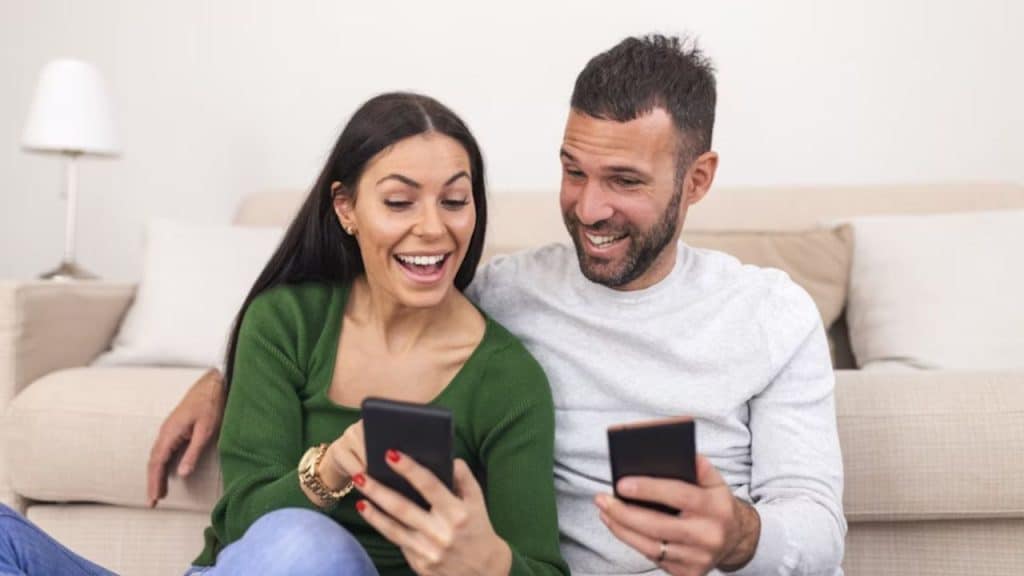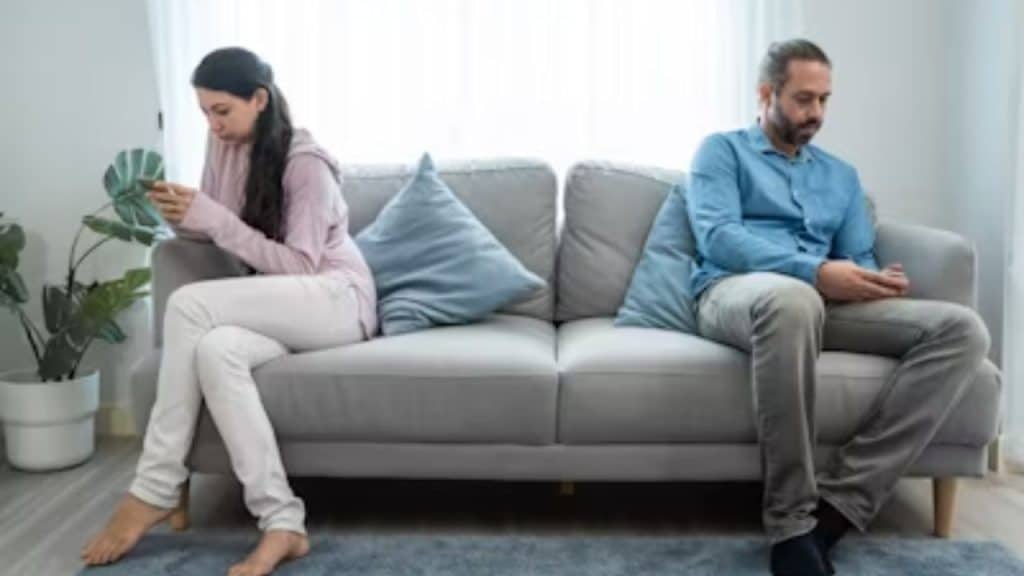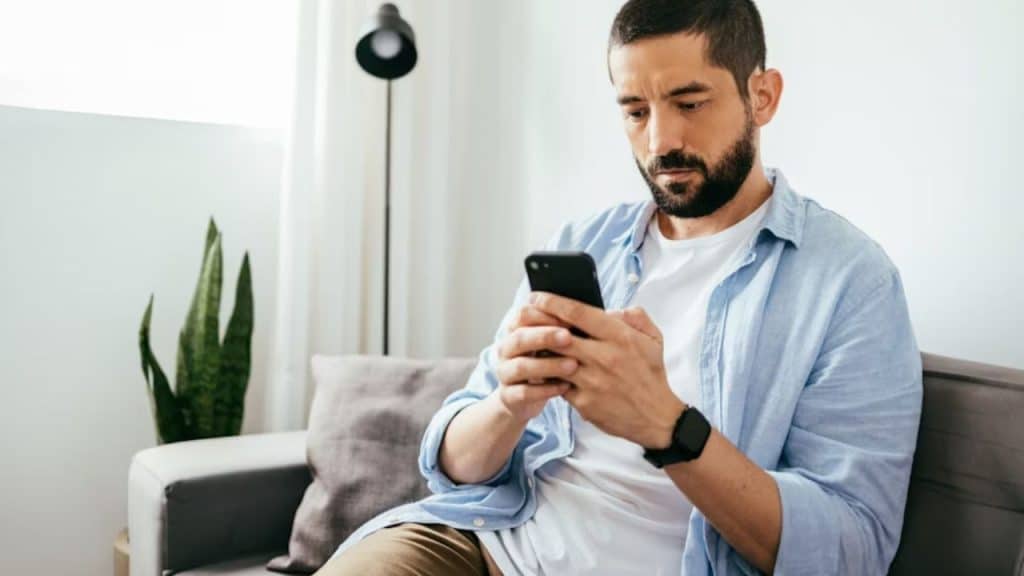
Giving your partner your phone password or streaming login seems like a modern love language. But when digital access replaces emotional intimacy, something gets lost. Trust should be built through presence, not surveillance. Shared passwords can blur boundaries and cause quiet emotional drift. A healthy connection doesn’t need constant monitoring.
Privacy Is Not Secrecy

Many men confuse personal space with dishonesty. But privacy is about identity, not hiding. When one person feels like they have to explain every swipe or tap, resentment builds. Respecting digital space is respecting autonomy. You can be honest and still have a lock screen.
Passwords Shouldn’t Replace Trust

Access to your inbox isn’t a substitute for emotional safety. If trust depends on being able to check each other’s devices, the relationship may already be fragile. Transparency matters, but surveillance signals fear. Trust grows through consistent behavior, not code access.
Emotional Disconnection Hides Behind Screens

Digital access can become a distraction from real intimacy. Instead of talking about tough emotions, couples check notifications. When a screen becomes the safest space, communication suffers. You can know everything in your partner’s phone and still feel like a stranger.
The Illusion of Closeness

Being able to log into each other’s accounts can feel like intimacy but it’s often surface level. Real closeness is about knowing each other’s fears, dreams, and values. Passwords are a shortcut that sometimes skips the real work. Don’t mistake access for connection.
Control Wears a Mask Called ‘Transparency’

One partner may ask for digital access “just to be open,” but it can mask insecurity or control. Constant checking becomes emotional micromanaging. Relationships need freedom to breathe. If someone always feels watched, they’ll eventually want to leave.
Boundaries Strengthen Commitment

Ironically, having clear digital boundaries can increase emotional connection. Knowing you both have private space creates mutual respect. It signals emotional maturity and a desire to protect individuality. Boundaries aren’t distance, they’re security.
Comparison Is Always One Click Away

Shared devices make it easier to compare, whether it’s social media likes, DM history, or old photos. But comparisons drain self worth. A man who constantly feels evaluated won’t feel safe being vulnerable. Protect your peace by setting limits.
Not Every Notification Is Your Business

Being in a relationship doesn’t mean every alert is up for discussion. When you feel entitled to every message or notification, it erodes trust. Curiosity can become controlled quickly. Boundaries help prevent that shift.
Digital Dependency Kills Natural Connection

When communication becomes digital first, emotional depth gets watered down. Texting replaces real conversations. Likes replace listening. If your phone knows more than your partner does, it’s time to recalibrate.
Jealousy Isn’t Fixed With a Password

Access doesn’t heal insecurity. A jealous partner won’t be reassured by your password, they’ll just find new things to question. Rebuilding security requires emotional honesty, not device control. If there’s fear, talk about it. Don’t try to password it away.
Resentment Builds in Quiet Ways

Even if your partner never says it, they might feel invaded. When autonomy is constantly interrupted, quiet resentment grows. They may stop sharing feelings altogether. And when that emotional wall is up, no password will get through.
Mutual Respect Mutual Passwords

You don’t need to prove love by sharing everything. It’s okay to have separate playlists, search histories, and text threads as long as nothing’s hidden with intent. Respecting space is more powerful than pretending to have nothing to hide.
Constant Access, Constant Pressure

If your partner can check your phone anytime, it can feel like a performance. What you text, how you respond, who you follow, suddenly everything has weight. It makes relaxation harder and pressure higher. That’s not peace, that’s prison.
Passwords Can Outlive the Relationship

Breakups get messier when digital accounts are entangled. Shared passwords can lead to post breakup surveillance, access issues, or boundary violations. Protecting each other includes preparing for all outcomes. Have respectful separation even before it’s needed.
It’s Not About Hiding, It’s About Health

Creating digital space doesn’t mean deception. It means both partners value their individuality and mental clarity. Boundaries aren’t barriers, they’re protection. Emotional wellness includes screen wellness.
What Happens to Emotional Intimacy?

Oversharing digital lives often kills curiosity. If you already know everything, there’s nothing left to discover. That kills attraction. Healthy mystery keeps love alive.
Set Rules That Work for Both of You

Every couple is different. The solution isn’t “never share” or “share everything.” The solution is clarity. Sit down and ask: What digital access feels supportive and what feels invasive? You’ll likely learn something new about each other.
Build a Connection Stronger Than Code

Love built on trust and maturity won’t need constant digital check ins. Connection thrives when people feel free and secure at the same time. Focus less on what you can access, and more on how present you are when it matters.
Rethink What Sharing Really Means

Sharing in a relationship shouldn’t mean losing yourself. True closeness comes from emotional safety, mutual respect, and quality time. Digital access is optional, emotional access is essential. Choose connection, not control.






Ask Me Anything